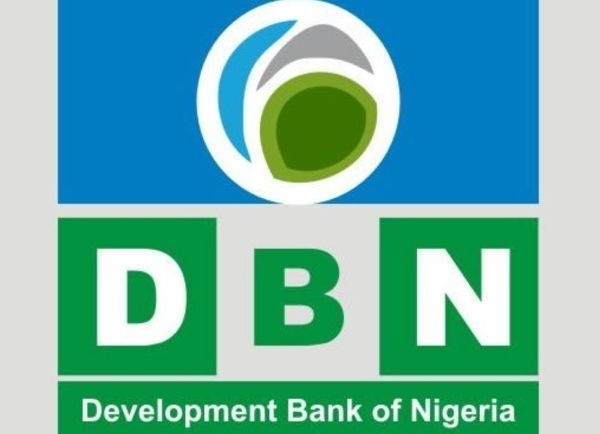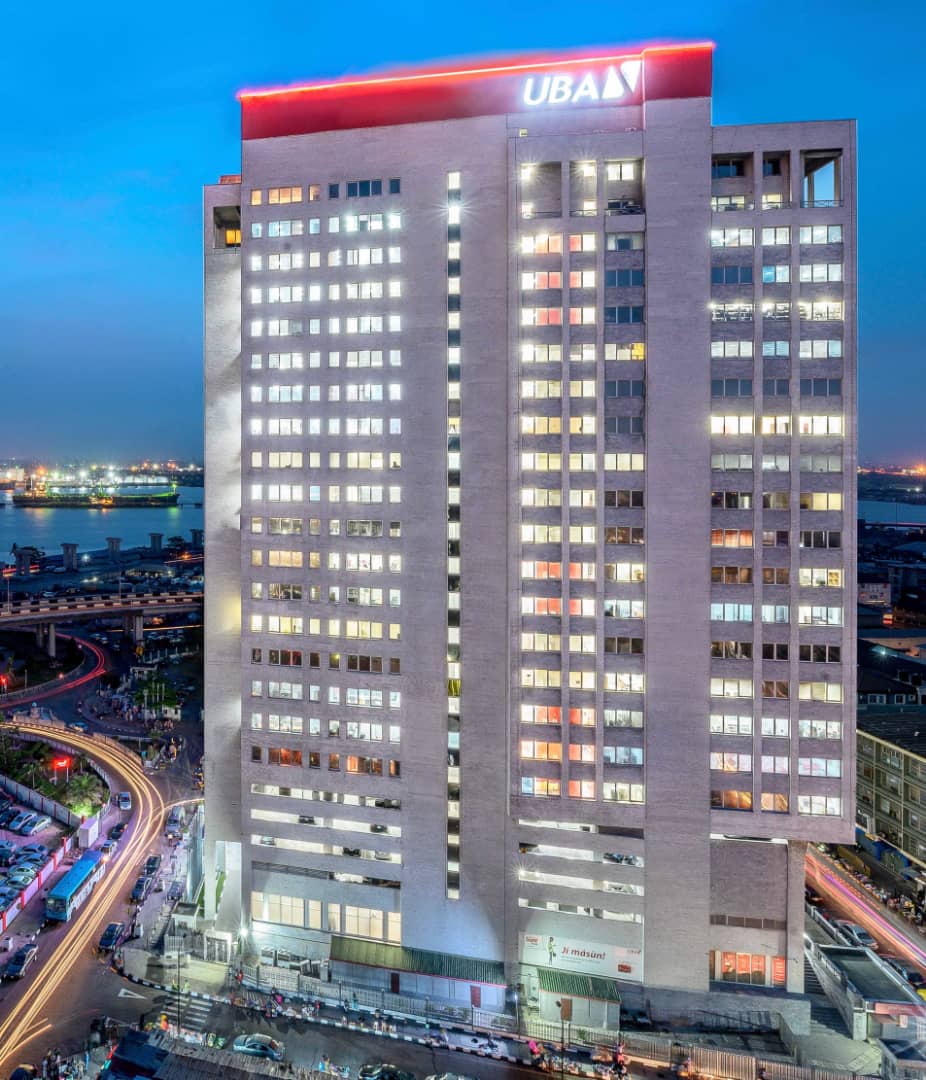E-Financial
DBN Urges MSMEs to Reinvent Business Model for Sustainability

In the light of prevalent economic realities of COVID-19 on businesses across the globe, Development Bank of Nigeria Plc (DBN) has advised Micro Small and Medium Enterprises in the country to reinvent their current business models for sustainability during the pandemic to enable them leverage growth opportunities for their businesses in the post COVID-19 era.

This was the takeaway from the panelists’ discussion at the DBN Webinar session which took place on Saturday May 9th, with the theme; “Alternative Financing Options for Sustainable Growth Post COVID-19 Lockdown”.
The Webinar series is aimed at providing capacity building and advisory services for MSMEs through digital platforms to ensure they are empowered to remain in business through this unprecedented period.
Panelists on the session include: Immediate Past President and Chief Executive Officer of Africa Finance Corporation and presently CEO & Partner, South Bridge Group, Mr. Andrew Alli; CEO of Emerging Africa Capital, Mrs. Toyin Sanni; Head SME, FCMB, Mr. George Ogbonnaya; and MD/CEO, Urban Shelter, Hajiya Sa’adiya Aliyu Aminu. The session was moderated by Chief Economist, Development Bank of Nigeria, Prof. Joseph Nnanna.
While dissecting the current implications of the pandemic on the Nigerian economy, the panelists pointed out that MSMEs are the hardest hit by the crisis, as they have limited access to capital and now have to depend on few customer base.
They however, stressed that this phase shall pass and only SMEs with innovative thinking and clear vision will be able to take advantage of the new normal.
“If you are an SME, the framework should be to survive the crisis period, have as much liquidity as you can and stem expenditure. You must stabilize the business by stabilizing your cost and reconfiguring your operations.
“For instance, a five-star hotel in Lagos has outsourced their laundry and restaurant. You can now order takeaway and pickup of your laundry. The crisis will end, and we will return to a period of growth.
“A lot of things will likely change because of this pandemic. So, you also need to prepare for that era. You have to be innovative, have a clear vision, be ahead of the curve to take advantage of the new normal,” said Andrew Alli.
On alternative sources of funding for MSMEs, George Ogbonnaya stated that investors will be frugal in the post COVID-19 era and will only be attracted to businesses that align purpose with strategic direction. He listed alternative sources of funding to include: Crowdfunding, Venture lending, Data driven lending platforms and Risk-Sharing Guarantees.
On her part, Toyin Sanni admonished small business owners to ‘COVID-Proof’ their business, as quality and branded digital presence will stand as distinguishing factors in the present and post COVID-19 era.
“Quality and how you distinguish your brand from competitors will be very important. So, while saving as much as you can during this period, you should also invest in your brand and digitize your business.
I would like to use the term ‘COVID-Proof’ for your business. Redesign your business such that you are able to do an end-to-end i.e. client acquisition, provision of services, and monitoring and evaluation should involve digital models,” she said.
As an advisory, Sa’adiya Aliyu Aminu said being the major drivers, MSMEs will be crucial to reviving the Nigerian economy just like the sector did after the 2015 recession. She called on the Federal Government to reaffirm the made in Nigeria policy to promote local production and patronage and curb capital flight after the pandemic.
At the end of the webinar, it was adjudged by participants as one of the best in recent times as it touched and proffered solutions to most of the critical challenges facing MSMEs. More so, now in the COVID-19 era.
The Development Bank of Nigeria is a development finance institution, established by the Federal Government in collaboration with global development partners to address the major financing challenges facing Micro, Small and Medium Scale Enterprises (MSMEs) in Nigeria.
DBN carries out this function by providing financial institutions, predominantly Deposit-Money Banks, Microfinance Banks and other financial institutions with funding facilities designed to meet the needs of MSMEs.
E-Financial
Africa Launches PAPSSCARD, First Pan-African Card Scheme

Africa has marked a significant step towards financial independence following the launch of PAPSSCARD, the continent’s first Pan-African card scheme.

Professor Benedict Oramah, president and chairman of the Board of Directors, Afreximbank,
Unveiled on June 27 at the 32nd Afreximbank Annual Meetings in Abuja, Nigeria, the new card represents a major leap in Africa’s efforts to achieve financial sovereignty by building resilient and independent payment systems, easing people travel and boosting trade integration.
PAPSSCARD, a joint-venture between the African Export-Import Bank (Afreximbank), the Pan-African Payment and Settlement System (PAPSS) and Mercury Payment Services (MPS), enables fast, secure, and affordable retail payments across African borders. Currently, most African card payments are routed through global systems causing increased fees and loss of data control. By processing transactions entirely within the continent, PAPSSCARD keeps value, data, and economic benefit in Africa.
Speaking at the launch, Professor Benedict Oramah, president and chairman of the Board of Directors, Afreximbank, highlighted the significance of PAPSSCARD in reclaiming Africa’s financial autonomy.
“For too long, Africa’s reliance on external payment systems has impeded trade, increased costs, and compromised control over our financial data. PAPSSCARD changes that. It empowers us to move money swiftly, securely, and affordably across our borders. It is a transformative step towards strengthening intra-African trade and preserving value within the continent.”
Mike Ogbalu III, CEO of PAPSS, described PAPSSCARD as a major advancement in the continent’s financial architecture, noting that it is “more than just a payment tool, it is a powerful symbol of progress and a bold step towards financial independence.” He added that the card reflects Africa’s ability to create practical, home-grown solutions that align with how the continent trades, lives, and grows.
Muzaffer Khokhar, executive chairman, Mercury, said the launch represents a milestone in Africa’s move toward financial sovereignty.
“We are proud to support a system built by Africa, for Africa. This is about sovereignty, innovation, and building trust in African systems to shape the continent’s financial future. The PAPSS Card will become Africa’s most trusted payments brand, strengthening the backbone of the continent’s financial future.”
John Bosco Sebabi, acting CEO of PAPSSCARD, added that the new payment offering will unlock benefits for a wide range of stakeholders, from corporates and banks to merchants and individuals.
He said that the PAPSSCARD card would “reduce costs for public institutions, support innovation across the financial sector, and expand access to secure, modern payment tools for people and businesses across the continent.”
Commemorative cards were unveiled at the 32nd Afreximbank Annual Meetings to mark the launch of the PAPSSCARD.
This initiative was made possible by strategic partnerships with issuing banks – Bank of Kigali and I&M Bank Rwanda; Rswitch, Rwanda’s national switch – Smart Cash; and Unified Payments, ensuring its seamless acceptance throughout Nigeria.
African central banks and payment systems are set to spearhead the continent-wide adoption and rollout of the new PAPSSCARD.
This initiative will significantly advance Afreximbank’s strategy to promote financial inclusion and boost intra-African trade under the African Continental Free Trade Area (AfCFTA), fostering a more integrated and self-sustaining African economy.
E-Financial
UBA Expands to More African Cities, Stamps Footprint in Saudi Arabia

United Bank for Africa (UBA) has announced strategic expansion into more African countries even as it plans to open a new office in Saudi Arabia, marking a significant milestone in its mission to connect Africa with key global markets.

Oliver Alawuba, GMD/CEO, UBA group,
This emerged during the Group’s Half Year Business Review held at its global headquarters in Lagos, where Oliver Alawuba, group managing director/CEO, UBA group, met with senior executives overseeing UBA’s 24-country footprint.
The meeting reaffirmed the bank’s pan-African strategy while outlining bold new steps into global markets.
Alawuba highlighted UBA’s continued growth outside Nigeria, with more than 51.7% of Group revenues now generated from its ex-Nigerian operations.
He described the Saudi expansion as a move that positions UBA to support cross-border trade, attract investment flows, and better serve the African diaspora.
“UBA’s vision is clear—we are building a truly global institution anchored in Africa, but serving customers across continents. Our entry into Saudi Arabia signals confidence in new opportunities and commitment to supporting economic connectivity between Africa and the Middle East,” he said.
The Saudi expansion adds to UBA’s international presence, which currently includes the United Kingdom, United States, France, and the United Arab Emirates. Alawuba also disclosed that the bank is upgrading its operating licence in France to further strengthen its European operations.
“In Europe, UBA has operations in the United Kingdom and is upgrading its licence in France, expanding its capacity to serve cross-border trade, investment flows, and the African diaspora, complementing our over 40-year presence in New York,” Alawuba noted.
Since launching its pan-African journey with an entry into Ghana in 2004, UBA has expanded rapidly across 20 African countries, establishing itself as a leading driver of financial inclusion, innovation, and regional integration.
E-Financial
Ecobank Plans to Raise $250m Capital Through Private Placement

Ecobank Transnational Incorporated announced its plan to raise up to $250m in Additional Tier 1 capital through a private placement of contingent convertible notes.

In a statement filed on the Nigerian Exchange Limited recently, the capital raise was approved by shareholders at the company’s Extraordinary General Meeting held in Lomé, Togo. The private placement offer was launched on July 9 and will run for ten days.
“Following the approval of the shareholders at its Extraordinary General Meeting held on May 28, 2025, in Lomé, Togo, to raise up to $250m in additional Tier 1 capital qualifying instruments via a private placement of contingent convertible notes, Ecobank Transnational Incorporated announces the launch of the AT1 effective July 9, 2025, for ten days. Renaissance Capital Africa has been appointed as the transaction adviser to ETI.”
The move is an initiative aimed at strengthening Ecobank’s capital adequacy, enhancing financial resilience, and supporting its long-term growth ambitions across its diversified pan-African banking platform.
Additionally, Madibinet Cisse, Ecobank’s Company Secretary, said, “This proposed capital raise represents a critical step in our efforts to fortify the bank’s financial foundation and support sustainable growth across Africa.”
It would be recalled that Ecobank Transnational Incorporated, the parent company of the Ecobank Group, has raised an additional $125m through a Eurobond tap, bringing the total size of its 2029 notes to $525m.

 Broadcasting1 day ago
Broadcasting1 day agoNigeria Week Ahead: Inflation, Oil and Naira in focus

 News1 day ago
News1 day agoEFCC: Accusations Against Our Chairman Are Baseless and Misleading

 General News5 hours ago
General News5 hours agoWoodhall Capital and Partners Launch ₦1.5Bn Fund

 Broadcasting8 hours ago
Broadcasting8 hours agoA Billion-Dollar Obsession in 90-Second Bites

 News5 hours ago
News5 hours agoFirstBank, NLNG, Shell back QEDNG Creative Powerhouse Summit

 General News5 hours ago
General News5 hours agoAM Best Reaffirms Stable Outlook for Cyber Insurance Market

 E-Business5 hours ago
E-Business5 hours agoFirm Highlights Top Risks of Quantum Computing

 News5 hours ago
News5 hours agoExperts Urge MSMEs to Build Strong Partnerships in Solving Problems,















